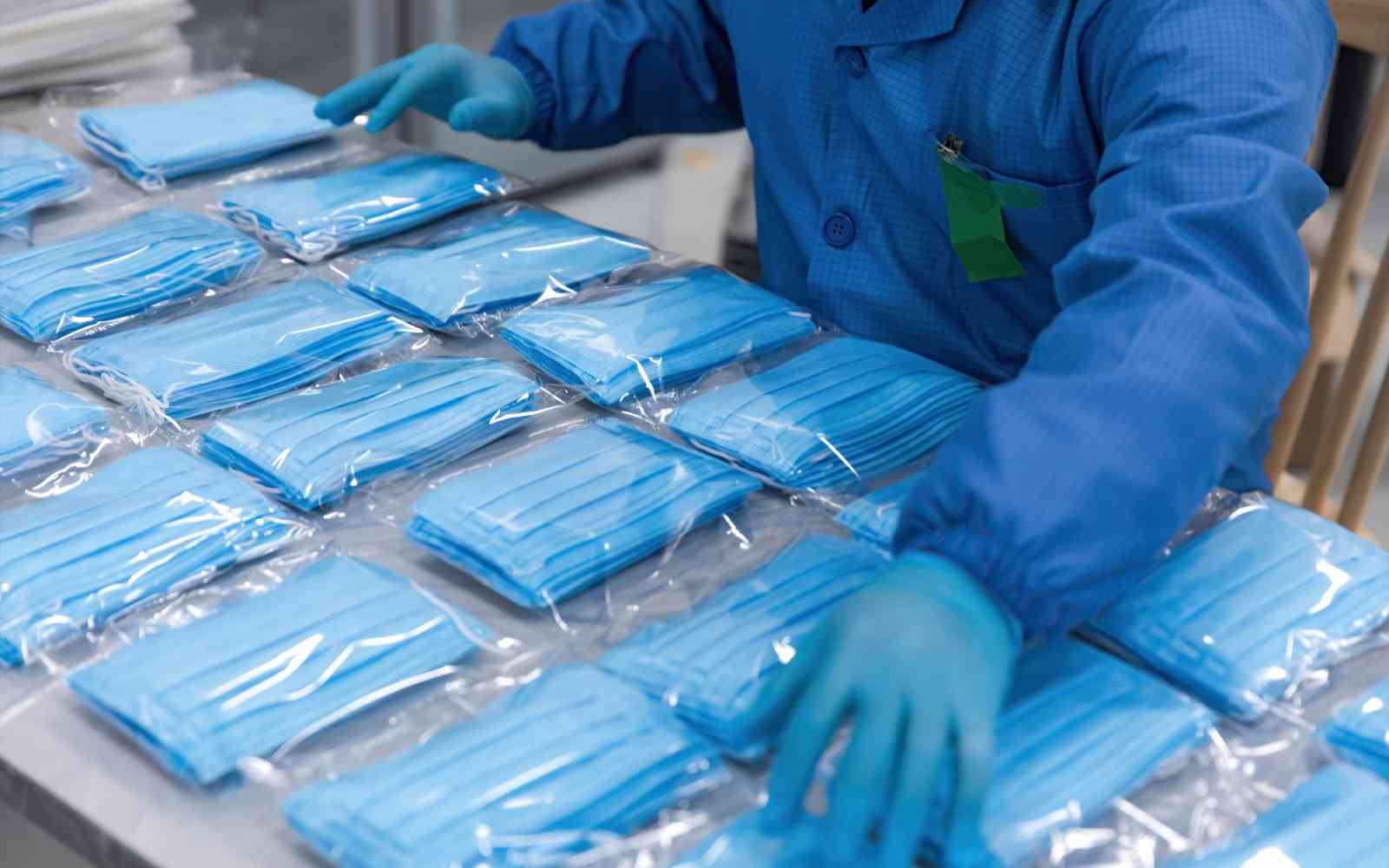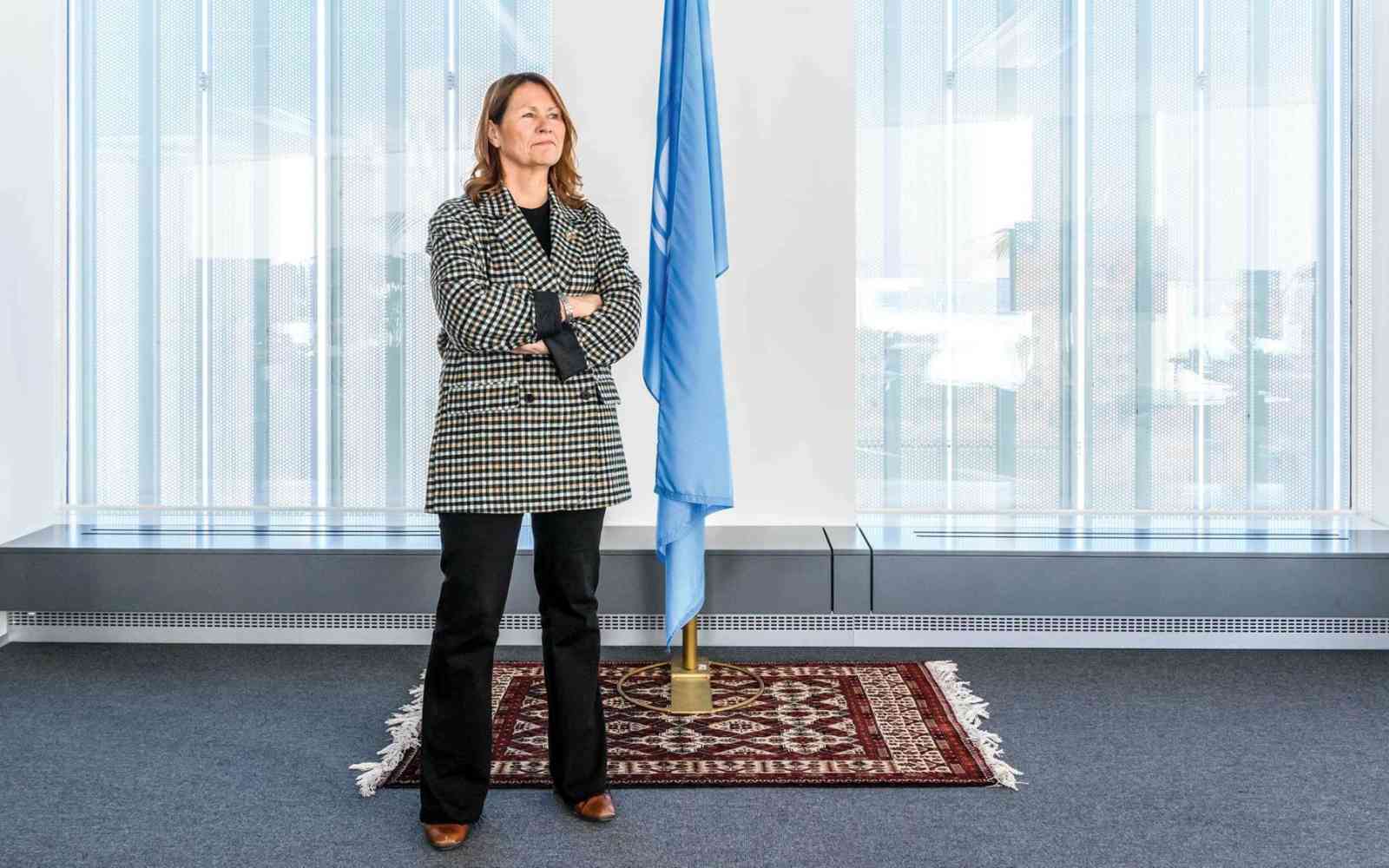The United Nations Office for Project Services (UNOPS)
For the fight against corruption to succeed, we need transparent public spending

With public resources under huge strain as countries respond to and recover from the pandemic, a renewed focus on tackling corruption in public procurement couldn’t be more urgent.
Imagine this: you’re a talented young person with great hopes for the future, but your dreams of going to university are shattered, because getting in means knowing the right – powerful – people, or paying huge sums in bribes. Getting a job is hard without the right contacts, so you decide to set up your own business, but quickly realize that may be impossible unless you are prepared to bribe those in charge. And when your ailing mother needs to be hospitalized, the person in charge won’t admit her without – you guessed it – a hefty bribe.
Corruption affects lives and livelihoods. It erodes trust in governments and citizens. It worsens inequality and adds to poverty. It discourages investment and hampers economic growth, and it actively impedes sustainable development. Recent research has shown how corruption hampered efforts to tackle the COVID-19 pandemic.
While corruption affects the poor and most vulnerable disproportionately, no one of us is immune to it. To create a better future for both people and the planet, we need to work together to tackle corruption."
Public spending accounts for 15-30 per cent of GDP in most countries. So one key avenue in the fight against corruption is through making sure public procurement is transparent. By one estimate, governments globally spend close to $13 trillion a year on public contracts. How and what governments spend their money on has huge potential to create jobs, drive gender equality and reduce carbon emissions.
Let me give you an example of this potential: The City of Oslo – which spends about €1 billion annually on construction – decided to focus on cleaner methods: fossil-free construction sites, working with private businesses to develop carbon-free materials and zero-carbon machinery. They used procurement to develop low-carbon standards. And they used a climate budget as a governance tool: to monitor how targets are achieved, what mitigation measures were taken and who is responsible.
Effective government spending can incorporate resilience, deliver critical supplies, boost local economies, drive innovation, and promote social and environmental sustainability at the same time. In short, getting public procurement right can play a key role in accelerating progress towards the Sustainable Development Goals.
Yet corruption poses a serious challenge to this potential. Estimates speak to the severe impact of corruption on economic growth and sustainable development. By one estimate, every year $1 trillion is paid in bribes.
The good news is – anti-corruption efforts are increasingly high on the agenda internationally: US President Biden has made the fight against corruption a core national security interest. Earlier this year, the UN General Assembly devoted a special session to corruption, calling for increased transparency and accountability in the management of public finances. In June 2021, G7 leaders highlighted the need to tackle corruption, including support for efforts to increase transparency in public procurement, and the G20 is adopting a new anti-corruption action plan.
The renewed focus on tackling corruption couldn’t be more urgent. As the head of UNOPS – the United Nations’s infrastructure and procurement specialists – I know from experience that public spending can be a powerful force for change, and one that countries are increasingly keen to tap into."
From Argentina and Mexico, to Honduras and Guatemala – my UNOPS colleagues support countries to ensure public money is better spent, so they can serve their citizens better and respond to national needs, while driving the green transition and ensuring value for money.
Governments can do – and many are already doing – more to prevent corruption and create public procurement systems that better serve their citizens: from pushing for more transparent and accessible processes, to reforming institutions and making them more accountable, to building up the capacity of the civil service, encouraging stakeholder participation and harnessing the power of new technologies.
A more inclusive approach to public procurement is key here, bringing together citizens, businesses and the government to ensure violations are reported and the procurement cycle is conducted through open and transparent platforms. Around the world, we can see examples of a more participatory and accountable approach to procurement, but we need far more, if we are to tackle the global pandemic of corruption.
There is a long and bumpy road ahead in our collective fight against corruption. Trust in political leaders is in short supply – and public resources are under huge strain as countries look to recover from the pandemic. Getting public spending right is a key step not just to address corruption, but also to build a more sustainable and inclusive future.











